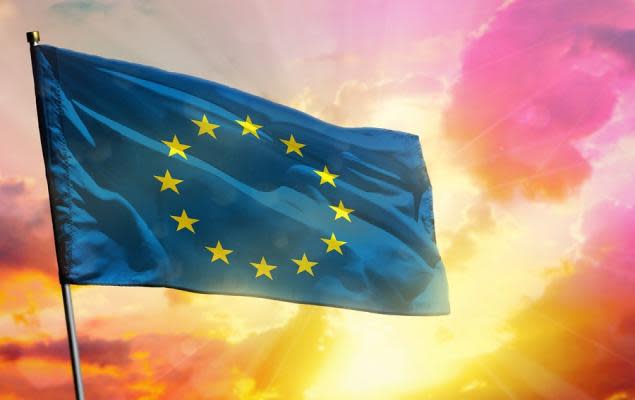EU Levies Up to 38% Tariffs on China EVs, Trade Tensions Rise

The European Union has announced that it will impose tariffs of up to 38.1% on electric vehicles (EVs) imported from China. This decision, effective from next month, not only targets Chinese automakers like BYD Co. Ltd BYDDY, Geely Automobile Holdings GELYY and SAIC Motor Corp., but also impacts Western companies such as Tesla TSLA and BMW AG BMWYY, which produce EVs in China for the European market. As China prepares to retaliate, the stakes in this trade conflict are rising.
EU's Tariff Decision
The European Commission launched an investigation into subsidies provided to Chinese EV manufacturers last year to address the concerns of its domestic EV industry, which faces competitive pressure from subsidized Chinese imports.
Following the probe, the EU decided to implement tariffs to counteract the perceived unfair advantages enjoyed by Chinese carmakers. These tariffs, which will come on top of the existing rate of 10% levied on all electric cars produced in China, are set at 17.4% for BYD, 20% for Geely and 38.1% for SAIC. Companies that did not cooperate with the investigation will also face the highest rate of 38.1%, while those that collaborated will see an average duty of 21%.
This move is part of the EU's broader strategy to protect its car industry, which supports millions of well-paid jobs and is critical to the region's economic stability.
Impact on Chinese and Western Automakers
Chinese automakers have been expanding aggressively into Europe, leveraging their technological advancements and competitive pricing to gain market share. The new tariffs are expected to increase the cost of selling EVs in Europe, which could potentially slow this expansion. Shares of Chinese EV manufacturers, including Geely, NIO, Li Auto, BYD and XPeng, have already declined in response to the EU's decision.
Western automakers, particularly those with significant production operations in China, will also feel the impact. Tesla, which ships its Model 3 from Shanghai to Europe, and BMW, which imports some of its EVs from China, will face higher costs due to the new tariffs.
China's Retaliation and Broader Trade Implications
China, of course, will retaliate, with potential measures targeting European agriculture, aviation and high-engine capacity vehicles. Beijing has already begun investigating certain European liquor imports, hinting at a broader strategy to counter the EU's tariffs. Chinese officials, including Commerce Minister Wang Wentao, have been actively lobbying European counterparts to reconsider the penalties, warning of reciprocal actions.
The EU’s decision to slap China with higher tariffs follows a much more aggressive move by the United States last month. The U.S. government had quadrupled tariffs on China-made EVs to 100%, in a move aimed at countering what it sees as unfair pricing practices by Chinese manufacturers and protecting American jobs.
The coordinated efforts by the United States and EU reflect growing concerns over China's dominance in the EV and battery supply chains, prompting these regions to seek protective measures.
Industry Reactions and Economic Considerations
The EU's decision has faced criticism from various quarters, including within the bloc itself. German Chancellor Olaf Scholz has cautioned against restricting automotive trade with China, emphasizing the importance of open markets. German automakers, such as Volkswagen and BMW, which sold 4.6 million cars in China last year, are particularly vulnerable to any retaliatory measures from Beijing.
Mercedes-Benz Group CEO Ola Källenius has called for maintaining open markets, noting that China is the company's largest market. The potential for retaliatory tariffs on luxury vehicles like S-Class and Maybach, which are imported into China, poses a significant risk to the company's profitability.
Conclusion
The imposition of tariffs on Chinese EVs by the EU marks a significant escalation in the global trade war. While aimed at leveling the playing field for European manufacturers, these measures risk provoking a tit-for-tat response from China and escalating into a broader trade conflict with significant economic repercussions.
The final duty levels are expected to be confirmed by November, unless a qualified majority of EU member states vote against the move. In the meantime, the industry must brace for increased costs and potential disruptions in the global supply chain.
Want the latest recommendations from Zacks Investment Research? Today, you can download 7 Best Stocks for the Next 30 Days. Click to get this free report
Tesla, Inc. (TSLA) : Free Stock Analysis Report
Geely Automobile Holdings Ltd. (GELYY) : Free Stock Analysis Report
Byd Co., Ltd. (BYDDY) : Free Stock Analysis Report
Bayerische Motoren Werke AG Sponsored ADR (BMWYY) : Free Stock Analysis Report

 Yahoo Finance
Yahoo Finance 